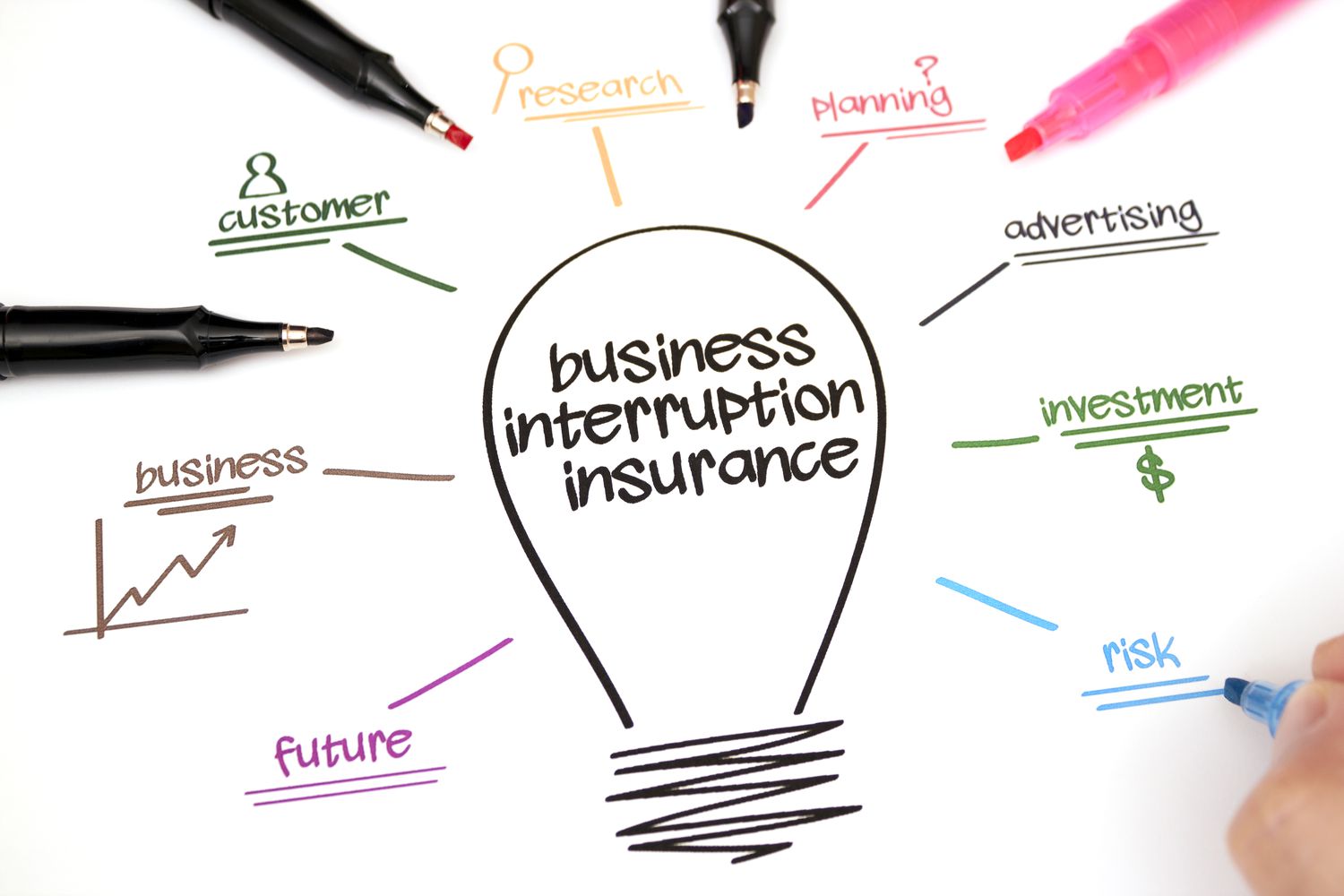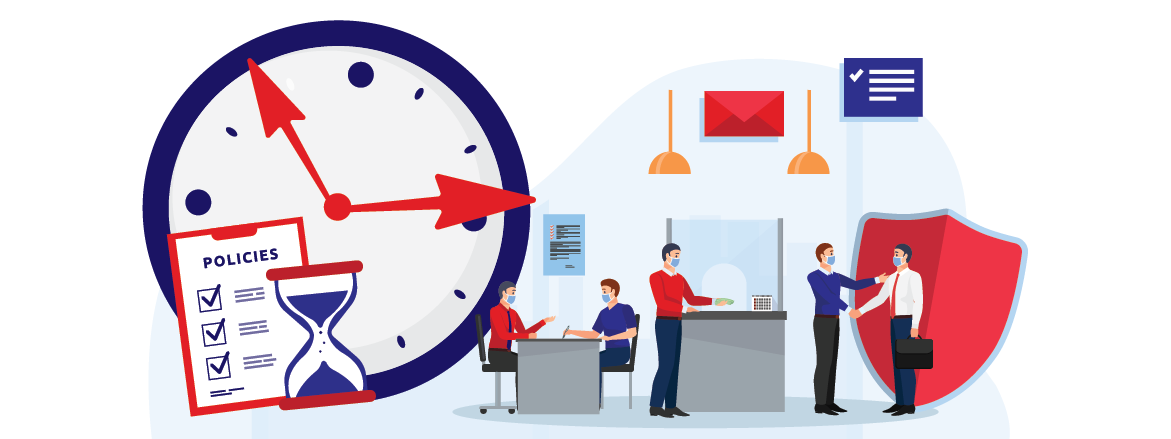The world has changed dramatically over the past few years, and businesses everywhere are feeling the impact. As uncertainty looms, protecting your business isn’t just a smart move; it’s essential for survival. One crucial aspect of this protection is understanding business interruption insurance.
This type of insurance can be a lifeline in times of crisis, helping cover lost income when disasters strike—be they natural events or unforeseen circumstances like a pandemic. But what exactly does that mean for you? And how can you ensure your business is covered when life throws curveballs?
Let’s dive into the ins and outs of business interruption insurance to help safeguard your enterprise against future challenges.
How the Pandemic has Impacted Businesses
The COVID-19 pandemic has reshaped the business landscape drastically. Many companies faced sudden closures, affecting their revenue streams overnight.
Brick-and-mortar stores struggled as lockdowns forced them to close, pushing businesses to pivot online rapidly. This shift wasn’t just a trend; it became essential for survival.
Supply chain disruptions emerged unexpectedly. Businesses that relied on imports found themselves facing delays or shortages, leading to operational hurdles.
Employee health and safety became paramount. Companies invested in protective measures, which added financial strain yet were necessary for employee well-being.
Consumer behavior also evolved during this time. Shoppers shifted towards digital platforms, expecting convenience and contactless transactions from brands they once frequented locally.
These changes created lasting impacts on industries around the globe, prompting businesses to rethink strategies and adapt swiftly in an ever-changing environment.
What is Covered by Business Interruption Insurance?

Business interruption insurance is designed to protect against loss of income during unexpected events. This coverage kicks in when your operations are halted due to circumstances like natural disasters or significant accidents.
Typically, it compensates for lost revenue that would have been generated had the event not occurred. Your fixed costs, such as rent and utilities, are also covered, ensuring you can keep essential expenses paid even while you’re unable to operate.
Additionally, this type of insurance often covers extra expenses incurred while trying to resume business activities. For instance, if you need temporary relocation or expedited shipping services to get back on track faster, those costs might be included.
It’s crucial to understand that each policy has its specifics. Be sure you review what’s included so there are no surprises when you need it most.
Types of Business Interruption Insurance Coverage
Business interruption insurance comes in various forms, catering to different needs. One common type is **standard coverage**, which compensates for lost income during a shutdown due to covered events like fires or natural disasters.
Another option is **extended coverage**. This goes beyond standard policies by including additional situations that can disrupt your business operations. For example, it may cover losses from supplier issues or civil disturbances.
Then there’s **contingent business interruption insurance**. This helps businesses affected by the loss of a key supplier or customer’s operations. If your revenue hinges on another party’s stability, this could be vital for you.
Some insurers offer **key employee coverage**. If a critical team member becomes unable to work due to unforeseen circumstances, this policy can help mitigate financial losses while you adjust and adapt to new challenges. Each type serves a specific purpose in protecting your enterprise when uncertainty strikes.
Steps to Take in Order to Get Business Interruption Insurance

Assess your needs first. Determine how much coverage you require based on your business operations and potential risks. Consider factors like revenue, expenses, and the nature of disruptions that could impact you.
Next, research providers. Look for insurance companies with a strong reputation in offering business interruption coverage. Read reviews and ask fellow business owners for recommendations.
Prepare necessary documents to streamline the application process. This may include financial statements, tax returns, and operational details about your company.
Once you’ve chosen a provider, discuss policy specifics with an agent. Clarify any terms or limitations to ensure it meets your expectations.
Don’t rush through signing the paperwork. Take time to review everything carefully before committing so you understand what you’re protected against fully.
The Importance of Reviewing and Updating Your Policy Regularly
Business environments change rapidly. Market conditions, regulations, and even your own operations can shift significantly over time. Regularly reviewing your business interruption insurance policy ensures it aligns with these changes.
As your business grows or adapts, so do the risks you face. An outdated policy might leave gaps in coverage that could cost you dearly during a crisis.
Incorporating new assets or expanding locations? Your insurance needs to reflect those developments. This proactive approach helps safeguard against unforeseen interruptions.
Engaging with an insurance professional regularly can provide valuable insights too. They can help identify potential vulnerabilities in your current coverage and suggest necessary adjustments.
Don’t wait for a disaster to strike before realizing you’re underinsured. Taking the time to review and update your policy means you’re better prepared for whatever challenges lie ahead.
Conclusion: Protecting Your Business During Uncertain Times
Navigating the complexities of running a business during unpredictable times can be daunting. The reality is that unforeseen events, like natural disasters or global pandemics, can disrupt operations and impact revenue streams significantly. Business interruption insurance emerges as a vital safety net, helping to mitigate these risks.
Understanding what this type of insurance covers and how it functions is essential for any business owner. It’s not just about protecting your physical assets; it’s about safeguarding your livelihood. Regularly reviewing and updating your policy ensures that you remain covered against evolving threats.
By taking proactive steps now—securing comprehensive coverage and staying informed—you position your business to withstand uncertainties better than before. Protecting yourself with the right tools allows you to focus on growth while minimizing risk in an ever-changing landscape. Your future success may very well depend on the decisions you make today regarding insurance protection.
Other Links:
On-Demand Car Insurance: The Future of Flexible Coverage for Modern Drivers
Gig Workers’ Guide to Insurance: How Freelancers Can Protect Their Health and Income
Is Pet Insurance Worth It in 2024? A Comprehensive Guide for Pet Owners
Securing Your Digital Wealth: The Rise of NFT and Cryptocurrency Insurance
